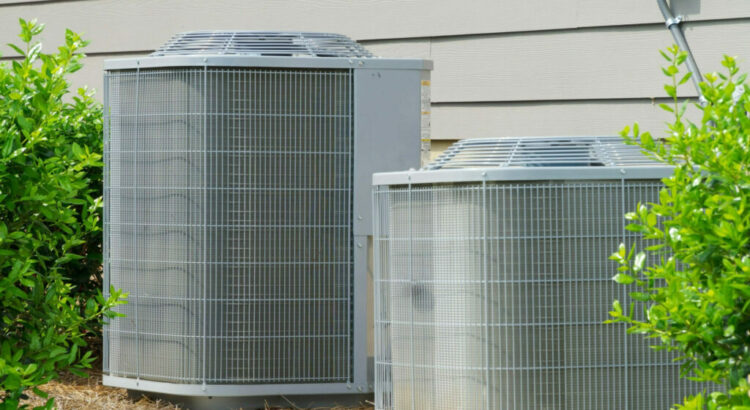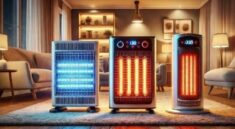Selecting the right HVAC (Heating, Ventilation, and Air Conditioning) system for your home is a decision that requires careful consideration. With a variety of systems available on the market, making the right choice can be overwhelming. However, understanding your home’s specific needs, the type of system, and the features that will provide the best comfort and energy efficiency is key to ensuring long-term satisfaction. This guide outlines the critical factors to consider when choosing an HVAC system that best fits your home’s requirements.
1. Assess Your Home’s Size and Layout
The first step in choosing the right HVAC system is to evaluate the size and layout of your home. A system that is too large will cycle on and off frequently, wasting energy and leading to uneven heating or cooling. Conversely, a system that is too small will struggle to maintain comfortable temperatures, causing it to work harder and wear out more quickly.
To determine the ideal system size, an HVAC technician can perform a load calculation, which takes into account the square footage of your home, the insulation quality, the number of windows, and your local climate. This will ensure the system is appropriately sized for your space, providing efficient and even temperature control throughout your home.
2. Consider the Type of HVAC System
There are several types of HVAC systems, each designed for specific needs. Choosing the right type depends on factors such as your home’s structure, energy efficiency goals, and personal preferences.
- Central Air Conditioning Systems: Central air systems are common in homes with existing ductwork. They provide consistent cooling throughout the entire home and can also be integrated with a heating system for year-round comfort.
- Ductless Mini-Split Systems: If your home does not have ductwork or you are considering a more energy-efficient option, ductless mini-split systems are a great choice. These systems consist of an outdoor compressor and multiple indoor units, allowing for individual room control. Ductless systems are ideal for smaller homes or spaces that need customized temperature control.
- Heat Pumps: Heat pumps are versatile systems that provide both heating and cooling. They work by transferring heat from the outside air into your home during the winter and reversing the process in the summer. Heat pumps are energy-efficient and well-suited for moderate climates where extreme cold is not a common issue.
- Hybrid Systems: Hybrid systems combine a heat pump with a traditional furnace, allowing you to switch between electric and gas heating depending on the weather. This flexibility can lead to greater energy efficiency.
Each of these systems has unique advantages, so it’s important to choose the one that best aligns with your home’s needs and your climate.
3. Evaluate Energy Efficiency
Energy efficiency is one of the most important considerations when selecting an HVAC system. Efficient systems not only reduce your environmental impact but also help lower your utility bills.
Look for units that have a high SEER (Seasonal Energy Efficiency Ratio) for air conditioning or an AFUE (Annual Fuel Utilization Efficiency) rating for heating systems. The higher these ratings, the more efficient the system. A high-efficiency system might have a higher upfront cost, but the long-term savings can make it a worthwhile investment.
Additionally, consider systems with advanced features such as variable-speed fans, which adjust the airflow based on your home’s needs, further enhancing efficiency. Choosing an energy-efficient system ensures that your home stays comfortable without a significant increase in energy costs.
4. Understand Your Climate Needs
The climate of your region plays a significant role in determining the right HVAC system for your home. If you live in an area with harsh winters, a robust heating system is essential. Conversely, in regions with hot summers, an efficient cooling system is a priority.
For moderate climates, a heat pump may be the ideal choice, as it can both heat and cool. In colder climates, however, a furnace may be more effective for heating. If your area experiences extreme heat and humidity, a central air conditioning system or a ductless mini-split system could provide the best cooling performance.
Understanding the climate in your region will help narrow down the type of HVAC system that offers the best balance of comfort and efficiency for your specific conditions.
5. Determine the System’s Noise Level
HVAC systems can vary in terms of noise, and this is an important factor to consider, especially if your home has quiet areas like bedrooms or study rooms. Some systems operate quietly, while others can produce noticeable noise, which may be disruptive in certain spaces.
Look for models that are specifically designed to operate quietly. Modern HVAC systems, particularly ductless mini-split systems and high-end central units, tend to be quieter than older models. Reading product reviews and consulting with an HVAC professional can help identify systems known for their quiet operation.
6. Consider the System’s Lifespan and Warranty
The lifespan of an HVAC system depends on its quality, maintenance, and usage. On average, a well-maintained HVAC system can last between 15 to 20 years. However, systems that are poorly maintained or are overworked may wear out more quickly.
When selecting an HVAC system, ask about the manufacturer’s warranty and the expected lifespan of the unit. A comprehensive warranty can offer peace of mind, protecting you from expensive repairs. It is also essential to regularly maintain the system with professional tune-ups, which will help extend its longevity and prevent premature failures.
7. Take Advantage of Smart Technology
Many modern HVAC systems offer advanced features such as smart thermostats and energy management tools. A smart thermostat allows you to control the temperature of your home remotely via a smartphone or tablet, enabling greater convenience and energy savings.
Some systems even offer integration with home automation systems, allowing for further customization of your home’s heating and cooling. By choosing a system with smart technology, you can maximize both comfort and energy efficiency, all while maintaining greater control over your home’s environment.
8. Budget and Installation Costs
Finally, consider your budget and the costs associated with purchasing and installing the HVAC system. While high-efficiency models may have higher upfront costs, the long-term savings in energy bills and maintenance can make them a more cost-effective option over time.
Don’t forget to factor in the installation cost, which can vary depending on the complexity of the installation and whether any modifications need to be made to your home (e.g., installing ductwork or upgrading electrical components). Be sure to get multiple quotes from licensed HVAC contractors to ensure you’re getting the best value for your investment.
9. Seek Professional Advice
Choosing the right HVAC system for your home can be complex, and consulting with a professional HVAC technician can provide invaluable insight. A qualified technician can help assess your home’s needs, recommend the right system, and guide you through the installation process. Their expertise ensures that your new system will be installed correctly, perform efficiently, and meet your comfort requirements.
By considering all these factors, you can confidently select an HVAC system that will provide optimal performance, energy efficiency, and comfort for years to come. Whether you’re replacing an old unit or installing a new system in a newly constructed home, the right HVAC system will make a significant difference in your overall quality of life.





